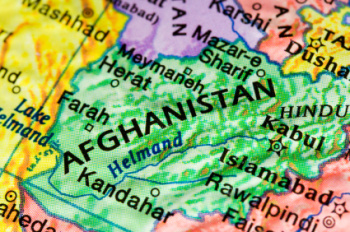 |
European Union governments have given in to the pressure and appear set to make a last-minute agreement with the United States to allow its intelligence agencies to monitor bank accounts and transactions across the bloc.
Actually, the EU has been clandestinely allowing US intelligence agencies to have access to these financial records since 2001, allegedly to fight terrorism.
However, EU citizens were outraged when this invasion of privacy was revealed in 2006.
Now, however, interior ministers and security officials of the 27-member bloc are going to meet on November 30 to make a decision on legally allowing the United States to have access to bank data across the EU.
According to Spiegel Online, the EU interior ministers gradually succumbed to the “massive” pressure exerted by US Secretary of State Hillary Clinton and US ambassadors in Europe, who pressed governments like door-to-door salespeople.
 “They pulled out all the moral and political stops,” one EU foreign minister quipped.
“They pulled out all the moral and political stops,” one EU foreign minister quipped.Germany was initially opposed to the agreement but came around this week, and a recalcitrant Austria, one of the last holdouts, followed suit.
German Interior Minister Thomas de Maizière, who is from the new coalition government, told German Justice Minister Sabine Leutheusser-Schnarrenberg, who belongs to the liberal Free Democratic Party (FDP), that he would not block the US proposal in Brussels.
There will not be a German “no” vote, but instead, he will simply abstain, Spiegel Online reported.
In what many Europeans say is a surreptitious move, the final decision on the issue is going to be made one day before the Lisbon Treaty comes into effect on December 1, since the treaty would allow the European Parliament to have a say in the matter.
However, the issue will definitely face opposition in the EU Parliament anyway since a majority of MEPs are opposed to the idea of disclosing the bank data to the US.
The new treaty envisages a host of security measures and has paved the way for many inexperienced but obedient people like Catherine Ashton, a former EU commissioner for trade, to be elevated to the very apex of European politics.
Many analysts view the entire process as an attempt by Washington to realize its security goals.
The US involvement in the EU's banking system started after it illegally got its hands on the private bank data via the Society for Worldwide Interbank Financial Telecommunication or SWIFT.
Over 8,000 financial institutions in over 200 countries are affiliated with SWIFT. The cooperative organization is not a bank and it lacks funds but operates a network of international financial messages.
The firm is registered in Belgium but one of its two major computer servers is located in the US.
In the wake of the 9/11 attacks, the White House decided to intercept the bank data of people suspected of involvement in terrorist activities via the SWIFT server in the US.
The CIA, the FBI, the US government, and major banks all put pressure on SWIFT until the organization “voluntarily” began to hand over millions of pieces of data.
Privacy advocates and liberal politicians are opposed to the “SWIFT agreement” because it would give US intelligence agencies access to the personal information and financial records of all EU citizens.
 The 9,000 Marines
The 9,000 Marines 




